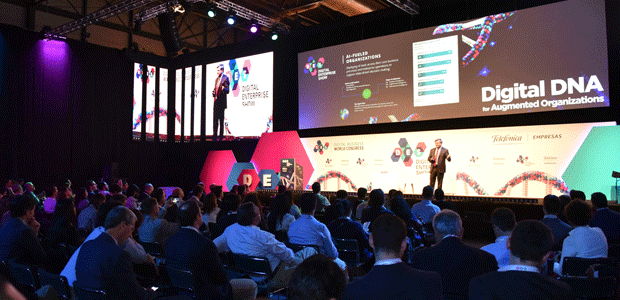
Health 4.0 or the challenge of digitising the health system for better patient care
Cellular rejuvenation, Artificial Intelligence to prevent data leakage or the use of Big Data for research will be some of the issues that will be addressed at the Healthcare & Life Sciences Forum of DES2022
Representatives of the Ministry of Health and the Health Systems of Andalusia, Madrid or Galicia will analyse together with professionals from the Vall d'Hebron or the Health Cluster of Galicia the future of health
The digitalisation of health processes has been a trend in recent years, especially because of the pandemic. Applications that perform the medical follow-up of the patient in a remote way and in real-time, Artificial Intelligence to accelerate health research or chatbots to improve the agility of the answers in the system, are some of the cases in which technology has helped the field of health to be more resolute, effective and accompany the user more satisfactorily.
For this reason, DES-Digital Enterprise Show 2022, the reference event in digital transformation in southern Europe that is held from June 14 to 16 in Malaga, will have the Healthcare & Life Sciences Forum, a space in which it will analyse how technology is applied to health sciences can transform health systems by making them more competitive.
"The objective of digitalisation in the health sector is to shape more efficient health systems, capable of meeting the needs of a growing population and, in the case of Spain, in addition, increasingly aged," says Nacho Villoch, director of the Digital Business World Congress, the world's largest congress on institutional organisations. which is organised in the context of DES-Digital Enterprise Show 2022. In fact, it will be at the Digital Business World Congress where different personalities such as Teresa Riesgo, Secretary General of Innovation of the Ministry of Science and Innovation; Jean Marc Bourez, CEO of EIT Health France; or Juan Fernando Muñoz, Secretary General of Digital Health of the Ministry of Health, will delve into the current state of the digitalisation of the health system to create a sustainable and efficient model.
4.0 technologies to safeguard user data
The privacy of patient data is a challenge for scientific research that can be saved with the use of Artificial Intelligence. In this sense, the more than 12,000 attendees of DES2022 will be able to know the public-private project Tartaglia, which has formulated an algorithm to train AI models without the data leaving the security ring of the health system itself. Juan Carlos Sánchez Rosado, IBM Health Industry Leader; Javier Quiles del Río, Deputy Director of Information Systems of the Ferrol Health Area of the Galician Health Service; and Inmaculada Pérez Garro, Digital Health Director of GMV SECURE E-SOLUTIONS will explain the method with which they have worked so that there are no information leaks and thousands of data are endangered.
Likewise, the use of Big Data to guarantee data privacy will be the issue on which the Director of Information Systems of the Vall d'Hebron hospital in Barcelona, Yolima Cossio, together with the Managing Director of the Health Cluster of Galicia, Gisela García Álvarez, will reflect and Román Villegas Portero, from the Technical Subdirectorate of Information Management of the Andalusian Health Service.
Health in the pocket: mobile applications to care for patients
The ecosystem of mobile applications specialised in health is one of the trends that is continuously booming since the pandemic, According to the State of Mobile 2022 report, carried out by the analysis and data provider App Annie, during 2021 2 were made. 500 million health and wellness app downloads, well above pre-COVID-19 levels (1. 970 million in 2019). It is for this reason that Louisa Stüwe, representative of the French Presidency of the EU in the Ministry of Health; Ana Miquel from SERMAS (Madrid Health Service); and Pablo Miquel, Chief Revenue Officer of the startup MIKA, who has created an app to support cancer patients, will discuss how to integrate health apps into public health services successfully.
The Healthcare & Life Sciences Forum will also delve into cell rejuvenation, led by Liz Parrish, known for having developed a gene therapy, which she is testing in herself, to combat age-related ailments. In addition, with the Novartis reference, it will be discussed how open innovation is bringing innovative ideas and models that are changing patient care and collaboration among healthcare professionals. The talent part will be led by IESE, which will analyse the digital capabilities and training needs necessary for the health future.

